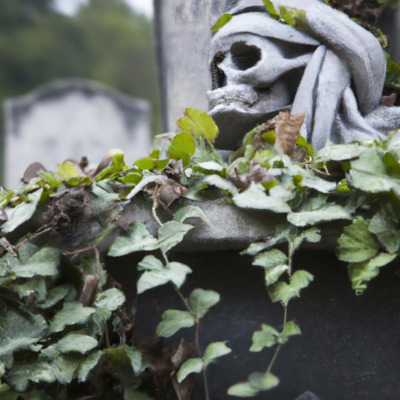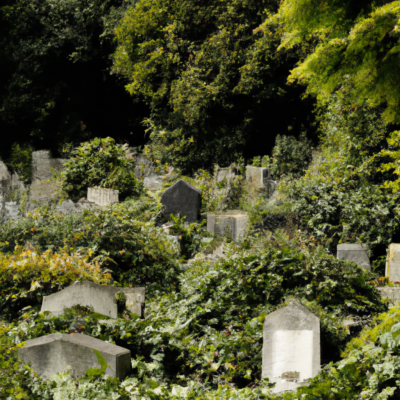Death is an inescapable part of life, and as our population ages, the need for compassionate and knowledgeable end-of-life care becomes increasingly important. A death doula, also known as an end-of-life doula or death midwife, is a non-medical professional trained to support and guide individuals and their families through the dying process. These doulas provide emotional, spiritual, and practical support, helping to create a peaceful and meaningful end-of-life experience. In this article, we will explore the world of death doula training, discussing the skills, knowledge, and qualifications required to embark on this rewarding and essential career.
The Role of a Death Doula
A death doula serves as a companion and advocate for individuals nearing the end of their lives. Their primary responsibilities include:
- Emotional Support: Offering a listening ear, empathy, and encouragement to the dying person and their loved ones as they navigate the complex emotions that accompany the end-of-life process.
- Spiritual Support: Helping individuals explore their beliefs and values, facilitating rituals or ceremonies, and creating a sacred space for the dying process.
- Practical Support: Assisting with advance care planning, creating a comfortable environment, coordinating with healthcare providers, and helping families understand the various aspects of the dying process.
- Bereavement Support: Providing guidance and resources for grief and loss, both before and after death, to help families cope and heal.
Death Doula Training Programs
There are various training programs available for aspiring death doulas, each with its own unique approach and curriculum. These programs typically cover the following topics:
- The Dying Process: Understanding the physical, emotional, and spiritual aspects of dying, including common symptoms and stages of the dying process.
- Communication Skills: Learning how to effectively listen, empathize, and communicate with the dying person and their family members.
- Spiritual and Cultural Competence: Developing an understanding of diverse spiritual and cultural beliefs surrounding death and dying, and learning how to support individuals and families from different backgrounds.
- Legal and Ethical Issues: Gaining knowledge about advance care planning, palliative care, and the legal and ethical issues surrounding end-of-life care.
- Self-Care and Boundaries: Learning how to maintain personal well-being, practice self-care, and establish healthy boundaries while working with dying individuals and their families.
- Grief and Bereavement: Developing an understanding of the grieving process and learning how to support families through the various stages of grief.
Most Popular Death Doula Training Programs
While there is no universal certification for death doulas, several organizations offer their own certification programs. The certification process usually involves completing a training program, gaining practical experience, and passing an examination. Some of the most reputable certification programs include:
There are several reputable and popular death doula training programs available, each with its unique approach and emphasis. Here is a list of some of the most popular programs to help you find the one that best suits your needs:
- International End of Life Doula Association (INELDA): INELDA is a leading organization in the field, offering a comprehensive training and certification program. Their curriculum covers various aspects of end-of-life care, including emotional and spiritual support, practical assistance, and bereavement care. INELDA also provides ongoing resources and support for certified doulas.
Website: https://www.inelda.org/
- National End-of-Life Doula Alliance (NEDA): NEDA’s training and certification program emphasizes professional standards and ethical practices. Their curriculum includes essential topics such as communication skills, spiritual and cultural competence, legal and ethical issues, and grief and bereavement support. NEDA also offers continuing education opportunities to help doulas stay current in the field.
Website: https://www.nedalliance.org/
- Conscious Dying Institute: The Conscious Dying Institute offers an extensive training and certification program with a focus on holistic and transformative approaches to end-of-life care. Their curriculum covers topics such as sacred end-of-life care, advanced care planning, after-death care, and grief support. The institute also provides ongoing mentorship and resources for graduates.
Website: https://www.consciousdyinginstitute.com/
- University of Vermont Larner College of Medicine: The End-of-Life Doula Professional Certificate program at the University of Vermont combines online coursework with an on-site intensive training experience. The program covers essential topics such as the dying process, communication skills, spiritual care, advance directives, and bereavement support. This training offers a unique opportunity to learn from experienced professionals in both medical and non-medical end-of-life care settings.
Website: https://learn.uvm.edu/program/end-of-life-doula-certificate/
- Lifespan Doula Association (LDA): The LDA offers a comprehensive end-of-life doula training and certification program that covers both the practical and emotional aspects of end-of-life care. Their curriculum includes topics such as the dying process, communication skills, advanced care planning, creating a sacred space, and grief support. LDA also offers a mentorship program and ongoing resources for certified doulas.
Website: https://www.lifespandoulas.com/
These popular death doula training programs provide the essential skills, knowledge, and support required to embark on a rewarding career in end-of-life care. Before choosing a program, it’s important to consider factors such as the curriculum, cost, delivery format, and any additional resources or support provided by the organization. By selecting a reputable and comprehensive program, aspiring death doulas can build a strong foundation for their practice and make a meaningful impact on the lives of those they serve.
In addition to certification, it’s essential for death doulas to engage in ongoing professional development and continuing education to stay current with best practices and research in the field.
The Importance of Hands-On Experience
Practical experience is vital for developing the skills and confidence necessary to support individuals and families through the dying process. Many training programs require a specific number of hands-on experience hours before certification. Volunteering with hospices, palliative care units, or home care organizations can provide valuable opportunities for hands-on experience. Additionally, seeking mentorship from experienced doulas can be an invaluable resource for learning and growth.
Death doula work can be both emotionally challenging and incredibly rewarding. Doulas have the unique opportunity to create meaningful connections with the individuals and families they serve, guiding them through one of the most profound experiences of their lives. The work of a death doula can be deeply transformative, as it often leads to personal growth, self-discovery, and a deeper understanding of the interconnectedness of life and death.
Building a Death Doula Practice
Starting a death doula practice requires not only the appropriate training and certification but also the development of a strong professional network and business acumen. Building connections with healthcare professionals, funeral directors, and other end-of-life service providers can help establish a steady referral network. Developing a clear and comprehensive service offering, along with a pricing structure, will help prospective clients understand the value of the services provided. Marketing strategies such as creating a website, utilizing social media, and engaging in community outreach can help raise awareness about the role of death doulas and attract potential clients.
Conclusion
Death doula training offers a unique opportunity to develop the skills, knowledge, and compassion required to support individuals and families through the end-of-life process. As the demand for end-of-life care continues to grow, death doulas will play an increasingly important role in helping to create a more mindful and compassionate approach to dying. With the appropriate training, certification, and hands-on experience, aspiring death doulas can embark on a deeply rewarding and transformative career, providing essential support and guidance for those facing life’s final journey.


Kyndal May is a certified doula with over 20 years of experience helping train doulas across the United States. She has received her certification from DONA (Doulas of North America) and has dedicated her career to supporting families during pregnancy, childbirth, and postpartum. With her extensive knowledge and experience, she is committed to providing compassionate and personalized care to every family she works with. In addition to her work as a doula, Kyndal is also a passionate advocate for women’s health and birth rights. She has spent many years educating and empowering families to make informed decisions about their birth experience. She also uses her experience to help train other doulas, passing on her knowledge and skills to the next generation of birth workers. With her dedication to her clients and her profession, Kyndal is a respected and valued member of the doula community.







